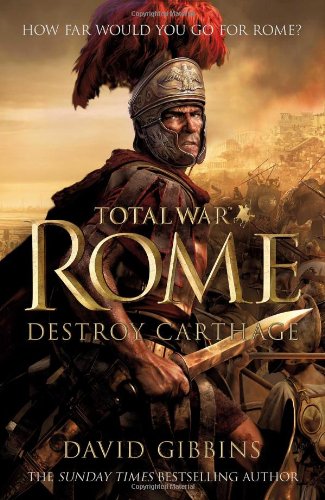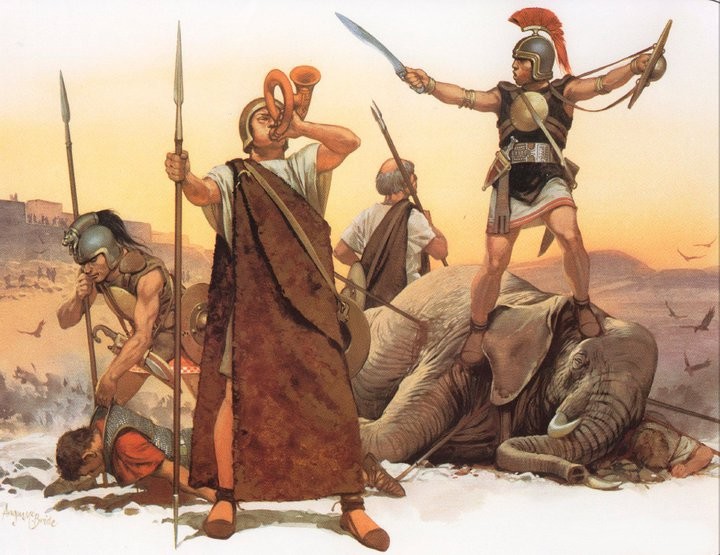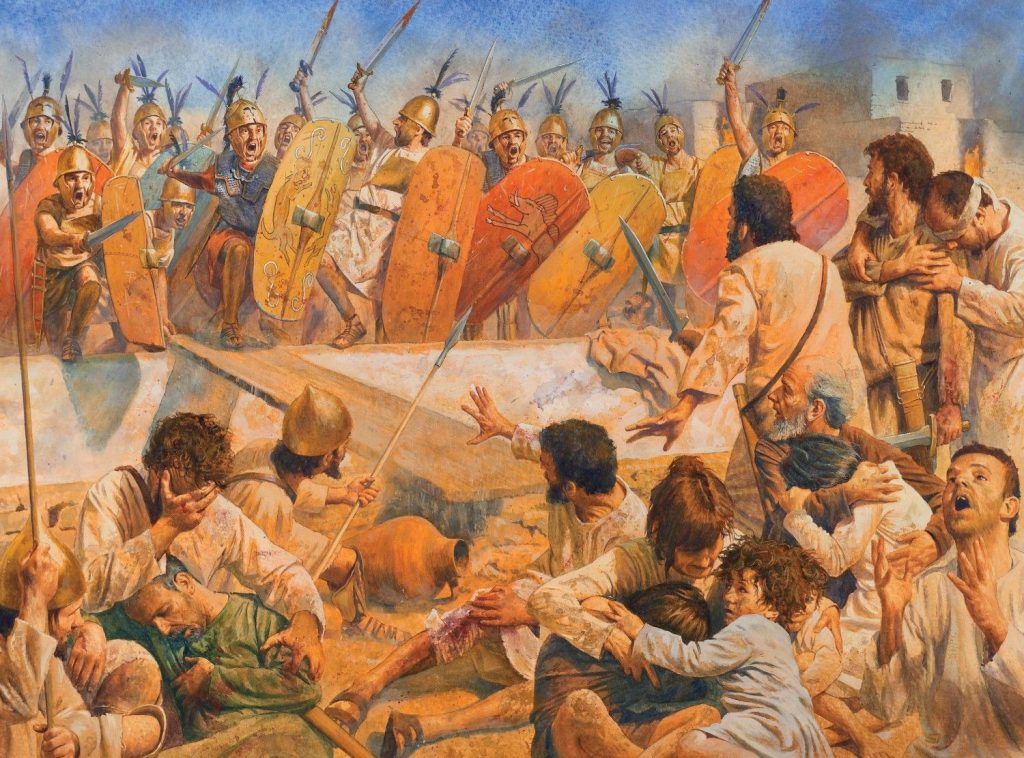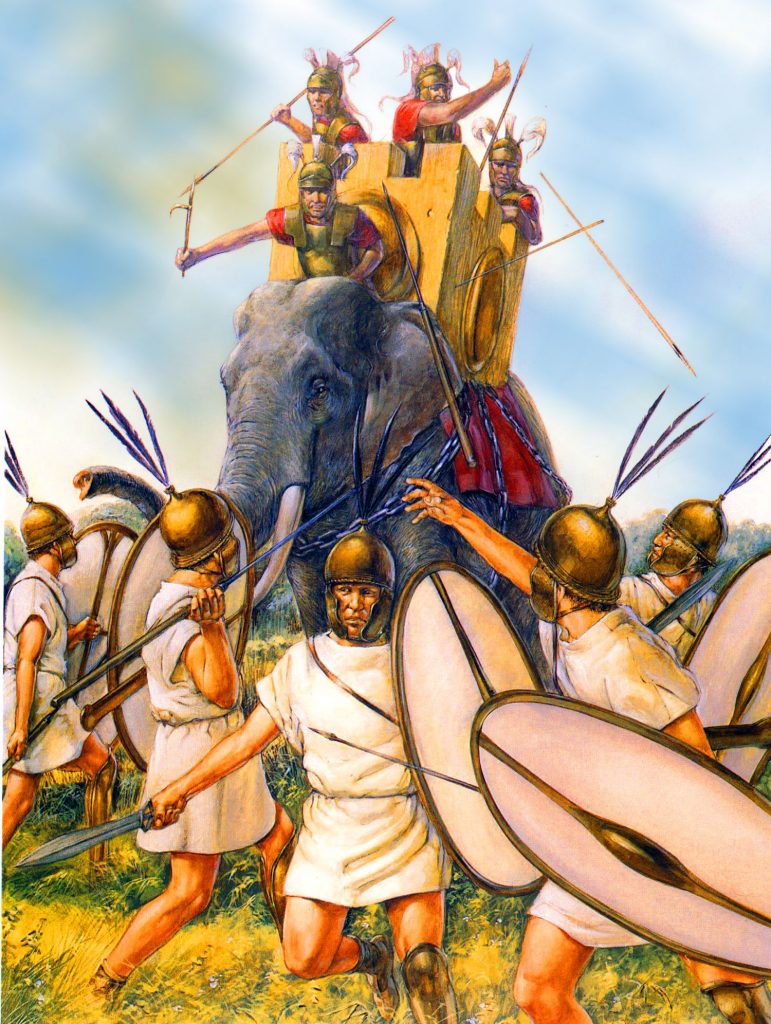 There has been a quiet rebirth in the historical novel in the past 15 years– Bernard Cornwell, Simon Scarrow, Ben Kane, Harry Sidebottom etc. Most are Sassenachs (i.e. Englishmen) who have a Roman fixation.
There has been a quiet rebirth in the historical novel in the past 15 years– Bernard Cornwell, Simon Scarrow, Ben Kane, Harry Sidebottom etc. Most are Sassenachs (i.e. Englishmen) who have a Roman fixation.
I picked up David Gibbins Rome Destroy Carthage at a Dollar General store last week for $3.00 in the paperback rack. I thought why not? “Total War” with a trademark symbol is above the title so there are probably others in this series by other authors. Gibbins seems to write techno-thrillers on the lines of Clive Cussler.
The novel is about Scipio Aemilianus, the general who destroyed Carthage in the Third Punic War in the 2nd Century B.C. Much of the novel is from the perspective of Fabius Petronius Secundus, friend of Scipio and later centurion in the Roman legions.
The novel starts with the Battle of Pydna in Macedon in 168 B.C. Gibbins does a fair job with the battle but seems to downplay one important aspect of the battle. The Roman legionaries got under the 16’ Macedonian sarissa (pikes) to cut down the phalanx in windrows.
The novel backtracks then to a military academy for training of future Roman military tribunes. There is some anachronism with one student messing around with gunpowder and theorizing about cannons.

Celt-Iberians fighting Romans
There is a period spent in Spain with the war with the Celt-Iberians. The Romans were involved in a very long guerrilla war there. Roman Praetor Servius Sulpicius Galba massacred and enslaved 10,000 Lusitanians in 151 B.C. This is not mentioned in the novel though a massacre of Celt-Iberians by legionaries under the command of L. Licinius Lucullus is off stage. Scipio fights a Celt-Iberian chief in single combat for terms of surrender of one oppida.
The novel leaps then to North Africa where Scipio and Fabius are with the Numidians. Gibbins attempts to build a conspiracy of a resurgent Carthage with Macedonia, Seleucid Syria, and Ptolemaic Egypt against Rome.
Scipio and Fabius even infiltrate Carthage in disguise to find out Carthage’s strength. They find the Carthaginians are engaged in predatory commercial practices that will eventually bankrupt Rome. Some corrupt Roman senators are even making money with the Carthaginians.
The novel jumps again to the siege of Carthage. This is strange as Scipio performed well in command of cavalry in the Third Punic War. He saved two maniples cut off and threatened with annihilation. It was his competency and bravery that got him the command in Africa. None of this is in the novel.
Gibbins makes a half-hearted attempt to make the Carthaginians villainous with child sacrifice and public torture of Roman prisoners.

The fall of Carthage
The result is a novel that is well told but lacking. There are some details that rubbed me the wrong way. He has the historian Polybius wearing an old-style Corinthian Greek helmet while a cavalry man. That is a helmet for hoplite infantry warfare. He also mentions the gladius hispaniensis being picked up after Scipio’s deployment in Spain. Everything I have read is the Roman legions took up the gladius hispaniensis during the Second Punic War which was fought over 50 years earlier. Gibbins also has some anachronistic telescopes being used to view Carthage. The single action scenes were not bad but the big battle’s seemed often rushed and vague.
I have a tough time viewing the Romans as the good guys. My Celtic ancestry leaves me with less than a laudatory view of the Roman Empire. The Roman were brutal, boorish, bullies that stuck their nose in other’s affairs, but were good engineers and builders. They made great ruins.
The Carthaginians were no model of civilization either. They had a vicious side such as crucifixion of defeated generals that made the Romans look mild in comparison. Brian Caven has this to say in The Punic Wars:
“The Carthaginians were hardly an attractive people. They did not have it in them to be the standard-bearers of a higher civilization. Selfish, parasitic, money-grubbing, corrupt and, when it cost them nothing, oppressive, they could never have provided the means by which all that best in Hellenic culture.”
It is sort of like watching Hitler attack Stalin.
Hannibal had to have been an inspiring leader to accomplish what he did with a heterogenous army of Africans, Spaniards, Gauls, Greeks, and Bruttians.
Gibbins also portrays the Thracians as consistently villainous. The Thracians like the Celts and Illyrians had the boot of Rome come down on them. They enlisted in the armies of Rome’s enemies including Macedon, the Seleucids, and Mithradates of Pontus. They were viewed as barbarians but who did the civilized states look to for soldiers? Tough Balkan hill men. Give the Thracians a break.
To be fair, the Carthaginians tried to head off war but the Romans were determined to destroy Carthage. It is hard to glorify this in a novel.
Someone might like this novel more than I did if they did not know much Classical history.

Radical Reg has tabled an urgent motion calling for a full debate on the pros and cons of centralist political systems and the effect of colonial policies on the infrastructure of subjugated societies. Will three weeks next tuesday suit you?
You can add Conn Iggulden, Anthony Riches and Russell Whitfield to the crop of current Roman novelists. Roman fiction is big business over here. Maybe it serves as a surrogate for British Empire fiction which is now out of kilter with the hand wringing sensibilities of our times.
It should be noted that there also seems to be any number of Boudicca, Hannibal and Spartacus novels out there currently to offset any imperialist agenda.
Anyone interested in reading a really good novel of the 3rd Punic War should hunt down a copy of Ronald Bassett’s 1963 book THE CARTHAGINIAN. Its excellent.
Total War, in case you’re wondering, is the name of a series of strategy video games. They’re pretty popular but I think Medieval Total War is the last one I tried and I found it so buggy that it was literally unplayable.
The Carthaginians were a terrible people but the destruction of Carthage was indefensible. Carthage had surrendered but Rome wanted them destroyed entirely and needed some sort of pretext, so they continued making more and more absurd and insane demands on the citizens, which they kept agreeing to because, you know…what choice did they have?
The breaking point was when they were literally told to just pack up and move the city over several miles. With this final refusal the Romans had their excuse and besieged Carthage. Carthage actually held out for much longer than expected, which of course made the Romans livid. Thus Carthage was burnt to the ground and the entire city enslaved or killed.
Romans were not the good guys here.
-
Anthony,
Agreed. This was pure power politics that periodically rears its ugly head. Like the last 10 years of the 30 years war and so on.
And what did Rome really accomplish by totally destroying the city and pouring salt over it?xavier
-
Well, it eradicated once and for all a rival power in the Mediterranean for a start, and an impediment to Rome’s own expansion. It might have been a vindictive and illaudable act but scarcely an incomprehensible one.
The Hittites and the Assyrians had been every bit as ruthless in their own territoral ambitions but are seldom subjected to the same sort of moral censure that the Romans are. Because they seem so similar to us in so many ways we often delude ourselves that we know them and so can pass judgements on their politico-military objectives. But their mindsets were those of antiquity with different priorities to ours. We may pride ourselves today on our empathies, compassion and sentimentalities but I don’t think the Romans would have been too impressed by them.
-